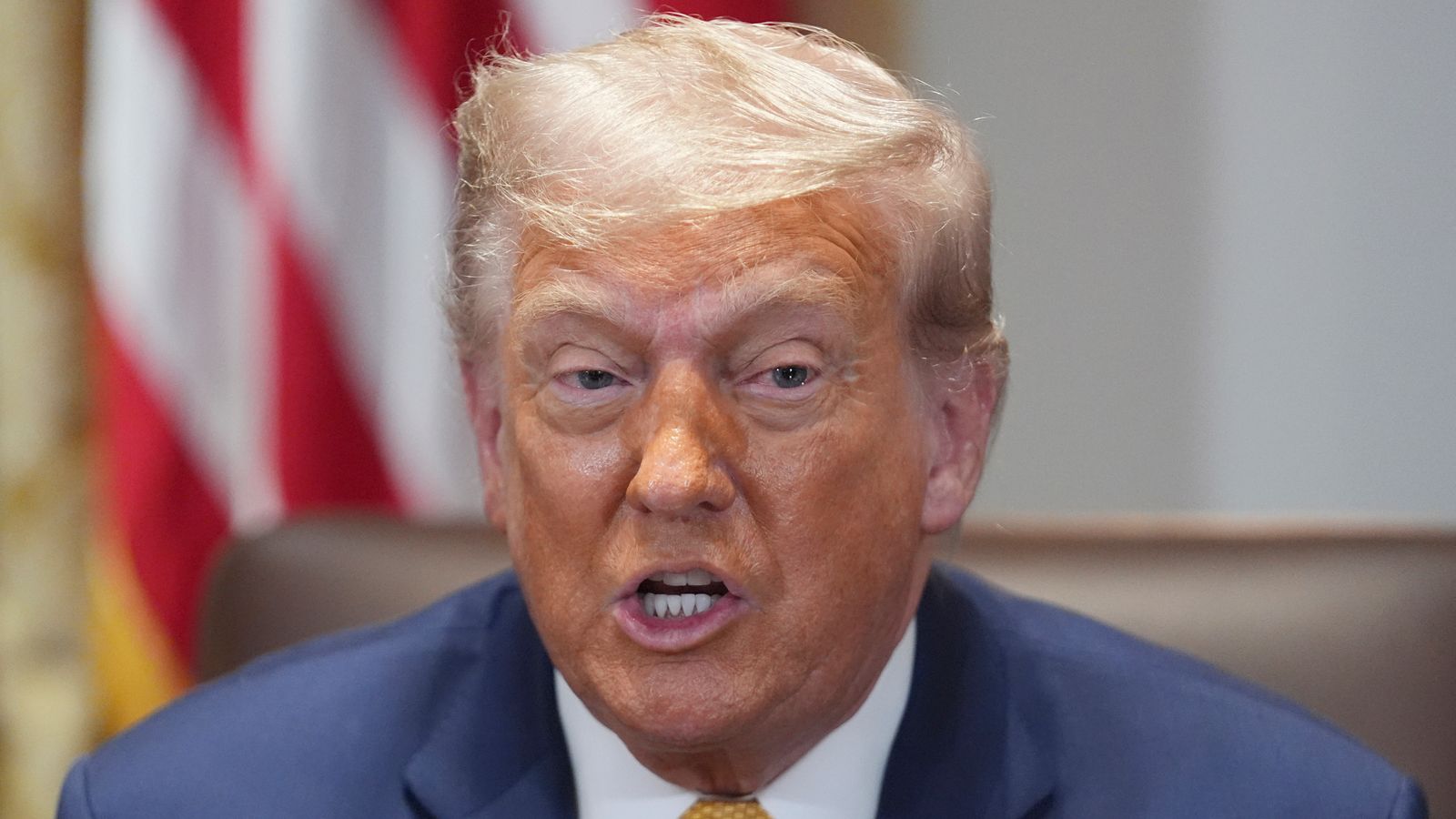The former boss of Britain’s most influential financial lobbying group is throwing his weight behind the trial of a service that it wants to become a national solution to the disappearance of thousands of bank branches across Britain.
Sky News has learnt that Stephen Jones, who ran UK Finance until last year, has joined OneBanks as its vice-chairman.
The start-up, which is piloting a shared branch kiosk in a Co-op store Denny, near Falkirk, Scotland, plans to raise millions of pounds in a Series-A fundraising during the summer, according to insiders.
It has already secured capital from backers including Rupert Pennant-Rea, former deputy governor of the Bank of England, and Baroness Bottomley, the former Conservative cabinet minister.
OneBanks has been set up to provide an answer to one of the most intractable reputational issues to confront Britain’s biggest high street lenders since the aftermath of the 2008 financial crisis.
Only last month, Santander UK, Britain’s fifth-biggest bank, said it would axe roughly 20% of its network by shutting more than 100 branches.
Virtually every other high street bank is engaged in a similar programme.
The closure of so many branches, which banks say has been driven by the rapid transition of most customers to digital services, has infuriated campaigners intent on preserving widespread access to cash and face-to-face banking services.
OneBanks is designed to offer a shared branch and ATM infrastructure solution to the banking industry, targeted at communities and retail and SME customers in areas where banks have withdrawn – or are likely to withdraw – branch coverage.
The pilot in Denny provides a service to thousands of residents who have been without any bank branch within four miles since 2017.
OneBanks’ business model is centred on charging participating banks a subscription fee for using it, while also levying a transaction fee each time a customer uses the kiosk.
It allows consumers to withdraw and deposit cash, make payments and set up an account on their own bank’s online banking platform if they wish to.
Additional services are expected to be added in the summer.
Duncan Cockburn, the company’s chief executive, said the start-up would “make banking and payments human again”.
“In enabling this development, we are also able to ensure that cash is available for those who prefer it and to help those who struggle with digital banking to engage with the latest technology, so nobody is left behind,” he added.
By using Open Banking payment ‘rails’, OneBanks argues that it will provide a cost-effective alternative solution for banks which can be deployed in a variety of different formats.
These could include the person-to-person kiosk, self-service or a software solution for other non-bank providers offering cash and payment services.
Sources said the company would seek to develop partnerships with other supermarkets and retailers and transport hubs such as train stations in order to expand its presence once the concept has been proven.
The mass closure of branches across Britain has drawn intense political criticism since Sir Vince Cable’s tenure as business secretary during the 2010-15 coalition administration.
However, there has been a weary acceptance in parts of government that the coronavirus pandemic has accelerated many millions of consumers’ transition to digital-only banking services.
Estimates suggest, nevertheless, that millions of people, particularly in rural communities, continue to prize access to physical banking infrastructure.
The Good Things Foundation, a social change charity, says that more than 11.5m Britons are without essential digital skills, and 3.7m people are offline altogether.
Mr Jones, a former executive at Barclays and Santander UK, is among OneBanks’ early investors.
He described the concept as “the community banking and payments solution for our times”.
“It is technologically advanced, socially and digitally inclusive, affordable and secure,” he said.
“OneBanks is not a bank, it is a shared infrastructure solution for banks and other payments firms to serve their customers better”.
The Post Office offers a comparable over-the-counter service for bank customers.
People close to the project believe that OneBanks’ model might also be applicable in areas which are ‘overbanked’, enabling banks to save money by pooling their efforts at one site.






